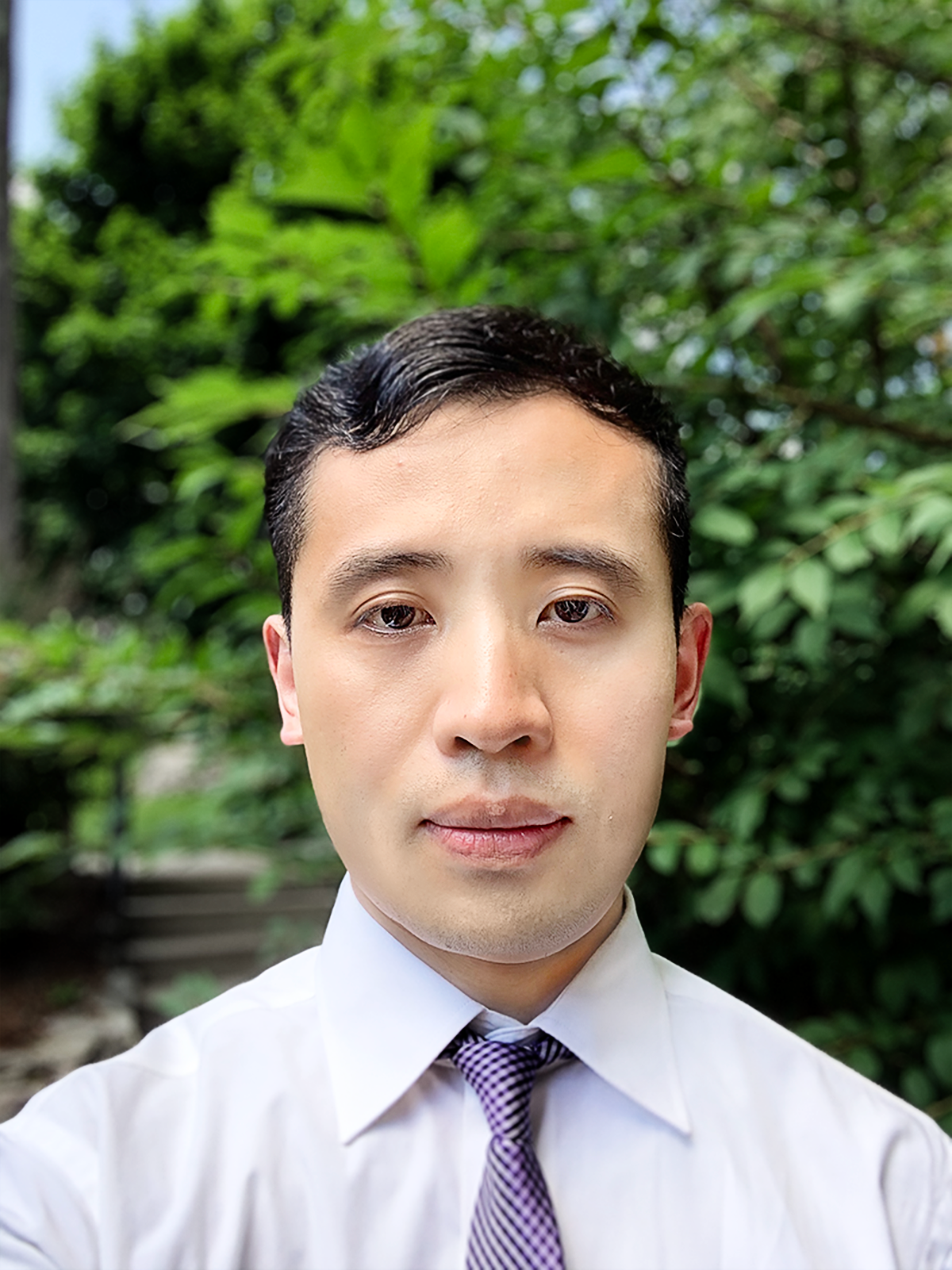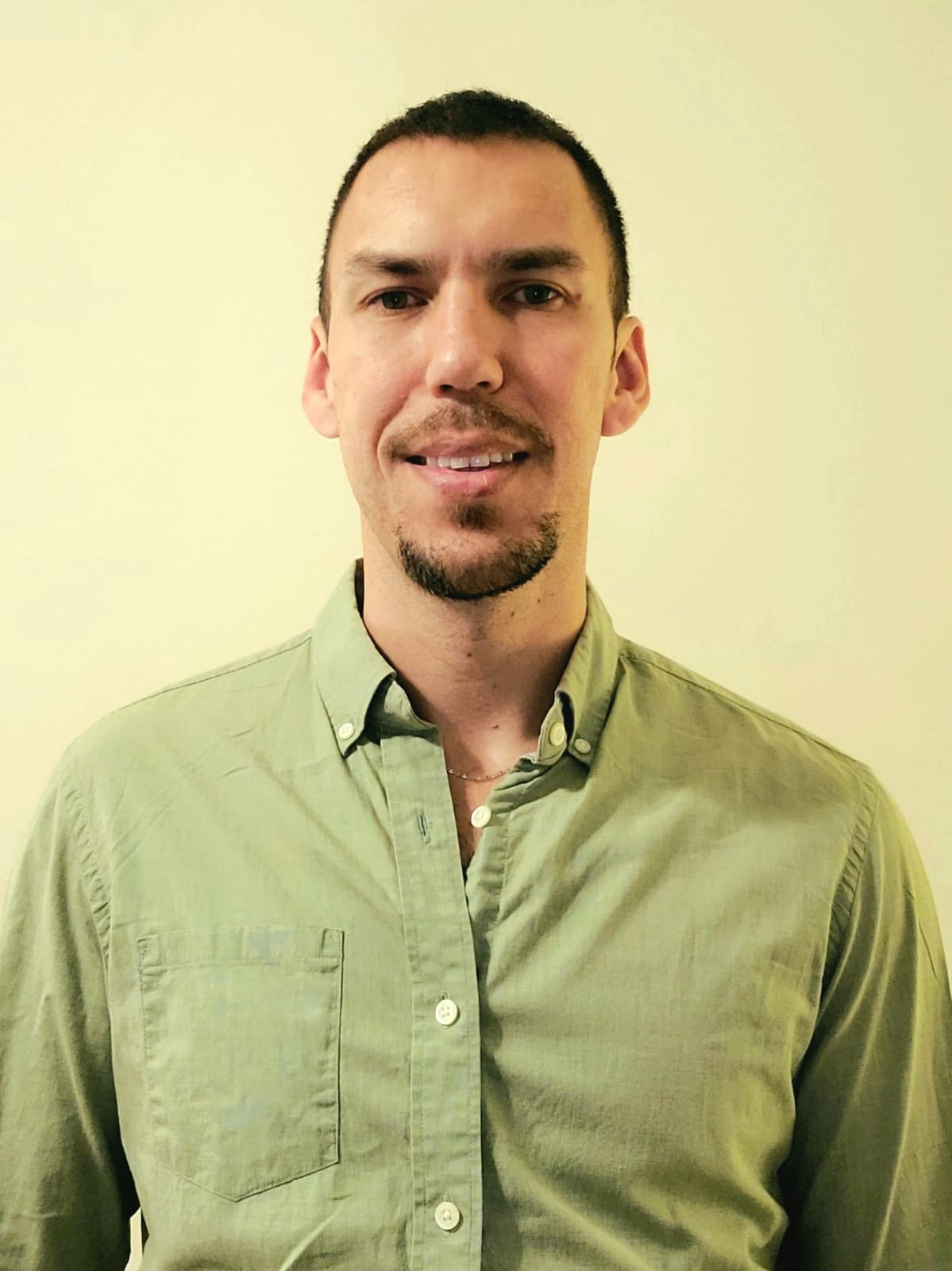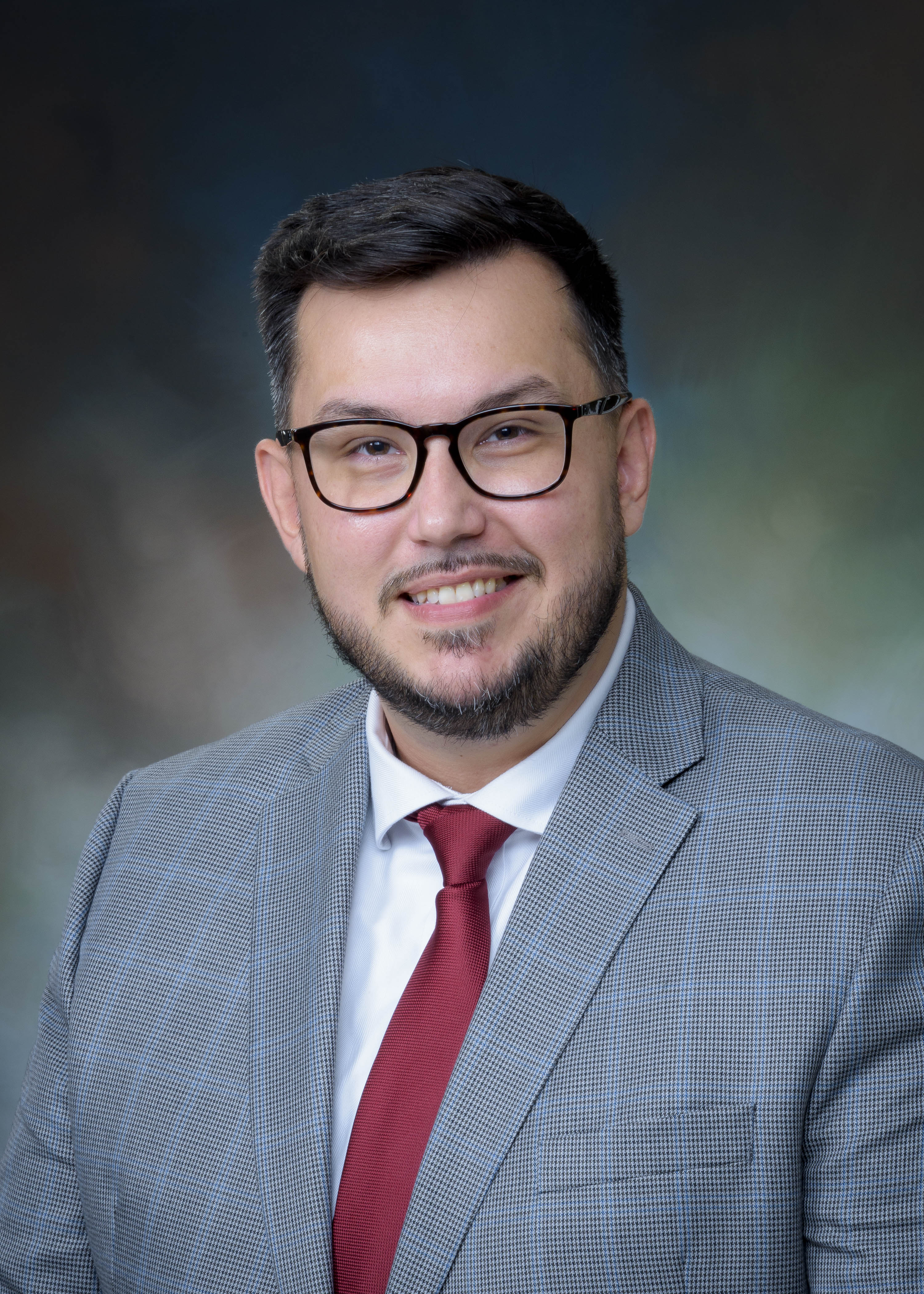 Dr. Peng Li obtained his PhD in Biomedical Engineering from Shandong University, China, in 2014; he received multidisciplinary postdoctoral trainings first focusing on nonlinear dynamics in physiology at Shandong University (2014-2015), then in sleep/circadian physiology and neurophysiology at Brigham and Women’s Hospital, Harvard Medical School (2015-2018). In 2019, Dr. Li was promoted to the Instructor in Medicine at the Harvard Medical School and Associated Physiologist at the Brigham and Women’s Hospital. He now also serves as the Research Director of the Medical Biodynamics Program, a multidisciplinary research and training program aiming to promote translation and interdisciplinary research in sleep medicine. Since his PhD, Dr. Li has been fascinated by how complex patterns in spontaneous fluctuations of physiological output can be linked to innate physiological or bodily functions such as autonomic function and circadian system, and associated with health outcomes. He has developed and applied many nonlinear algorithms for harnessing changes in physiological signals that are better connected to adverse outcomes than traditional analytical approaches. For example, Dr. Li has shown that the scale invariant patten (i.e., fractal pattern) in spontaneous rest-activity recordings (i.e., actigraphy) degrades with aging that exacerbates with the clinical progression of Alzheimer’s dementia (Li et al. 2019 Neurobiol Aging), is associated with incident Alzheimer’s dementia (Li et al. 2018 Alzheimer Dement), and predicts frailty, disability, and death (Li et al. 2019 Sci Transl Med) independent of many known risk factors. His study has also demonstrated that various circadian function degradations predict the risk of Alzheimer’s dementia years ahead of cognitive symptoms occur and progress in parallel with cognitive decline (Li et al. 2020 Lancet Healthy Longev). Dr. Li is keen to apply his expertise to promote a proactive strategy for early detection of individuals with elevated risk of cognitive symptoms or brain pathology, to achieve healthy aging especially healthy cognitive aging, which means even more in vulnerable populations such as people living with HIV infection (PLWH). Dr. Li has become more and more interested in studying PLWH after learning that they are more prone to experience cognitive impairment. To obtain advance research training in HIV and aging, he has applied and successfully secured a Developmental Award from the Harvard University Center for AIDS Research to study changes in daily activity patterns in PLWH and their relationship with cognitive performance. Inspired by his prior research, in this Pilot Project sponsored by the HIV and Aging Research Consortium, he proposed to utilize a novel data-adaptive analytical tool, namely empirical mode decomposition that is better suited for analyzing nonstationary and nonlinear physiological data and has been shown to be able to extract intrinsic oscillation mode representing rest-activity circadian rhythms, to study actigraphy of 100 PLWH in the UK Biobank cohort. He will investigate rest-activity circadian rhythm changes in PLWH using this novel approach and whether it links to cognitive performance. He will also explore the potential mechanism in terms of multimorbidity that contributes to the association between circadian dysfunction and cognitive deficits.
Dr. Peng Li obtained his PhD in Biomedical Engineering from Shandong University, China, in 2014; he received multidisciplinary postdoctoral trainings first focusing on nonlinear dynamics in physiology at Shandong University (2014-2015), then in sleep/circadian physiology and neurophysiology at Brigham and Women’s Hospital, Harvard Medical School (2015-2018). In 2019, Dr. Li was promoted to the Instructor in Medicine at the Harvard Medical School and Associated Physiologist at the Brigham and Women’s Hospital. He now also serves as the Research Director of the Medical Biodynamics Program, a multidisciplinary research and training program aiming to promote translation and interdisciplinary research in sleep medicine. Since his PhD, Dr. Li has been fascinated by how complex patterns in spontaneous fluctuations of physiological output can be linked to innate physiological or bodily functions such as autonomic function and circadian system, and associated with health outcomes. He has developed and applied many nonlinear algorithms for harnessing changes in physiological signals that are better connected to adverse outcomes than traditional analytical approaches. For example, Dr. Li has shown that the scale invariant patten (i.e., fractal pattern) in spontaneous rest-activity recordings (i.e., actigraphy) degrades with aging that exacerbates with the clinical progression of Alzheimer’s dementia (Li et al. 2019 Neurobiol Aging), is associated with incident Alzheimer’s dementia (Li et al. 2018 Alzheimer Dement), and predicts frailty, disability, and death (Li et al. 2019 Sci Transl Med) independent of many known risk factors. His study has also demonstrated that various circadian function degradations predict the risk of Alzheimer’s dementia years ahead of cognitive symptoms occur and progress in parallel with cognitive decline (Li et al. 2020 Lancet Healthy Longev). Dr. Li is keen to apply his expertise to promote a proactive strategy for early detection of individuals with elevated risk of cognitive symptoms or brain pathology, to achieve healthy aging especially healthy cognitive aging, which means even more in vulnerable populations such as people living with HIV infection (PLWH). Dr. Li has become more and more interested in studying PLWH after learning that they are more prone to experience cognitive impairment. To obtain advance research training in HIV and aging, he has applied and successfully secured a Developmental Award from the Harvard University Center for AIDS Research to study changes in daily activity patterns in PLWH and their relationship with cognitive performance. Inspired by his prior research, in this Pilot Project sponsored by the HIV and Aging Research Consortium, he proposed to utilize a novel data-adaptive analytical tool, namely empirical mode decomposition that is better suited for analyzing nonstationary and nonlinear physiological data and has been shown to be able to extract intrinsic oscillation mode representing rest-activity circadian rhythms, to study actigraphy of 100 PLWH in the UK Biobank cohort. He will investigate rest-activity circadian rhythm changes in PLWH using this novel approach and whether it links to cognitive performance. He will also explore the potential mechanism in terms of multimorbidity that contributes to the association between circadian dysfunction and cognitive deficits.
Associations between rest activity circadian rhythm and cognition in PLWH
Cognitive impairment is an increasing clinical concern as people living with HIV infection (PLWH) age. It leads to poor adherence of the older PLWH to complex medical regimens that are necessary for independent living. Responding to this potential crisis affecting quality of life within PLWH, the PI Dr. Peng Li’s research focuses on the identification of biomarkers and modifiable risk factors for cognitive impairment, and the application of lifestyle modifications that can improve cognitive performance. This proposed Pilot Project is focused on circadian function, a fundamental driver of physiological homeostasis. In the general population, prior work including ours showed that circadian disturbance appears in preclinical Alzheimer’s disease. It further deteriorates with cognitive decline. In animals, circadian deficiency is shown to be associated with greater susceptibility to virus infection; virus infection also interferes with circadian clock, leading to impaired circadian rhythms (such as in activity, body temperature, and circulating biomarkers including cortisol and growth hormone etc.). In PLWH, there is indirect evidence for circadian deficiency including disturbed sleep and sleep-wake rhythms. PLWH are also found to have blunted day-night systolic blood pressure dipping and morning-evening CD4+ lymphocytes oscillation. To prepare data for in-laboratory examination of the endogenous circadian function of PLWH, this Pilot Project aims to characterize the circadian rest-activity patterns in PLWH by analyzing rest-activity data from actiwatch using a novel data adaptive approach (namely empirical mode decomposition, EMD), examine the association between circadian variations and cognition, and understand the potential mechanisms underlying this association in PLWH. We propose to study 100 PLWH and 500 uninfected controls (extracted from over 100,000 participants) of 40-69 years old in the UK Biobank cohort. Two hypotheses will be tested: (Hypothesis 1) There are greater variations in circadian patterns in PLWH compared to uninfected controls that adversely influence cognitive performance. We will perform the EMD to extract cyclic components in actigraphy. The EMD has no assumption of the cycle length, allowing the examination of potential deviation in the rest-activity period from being exactly 24 hours. We will calculate the amplitude, phase, and length of each circadian cycle across seven days of actigraphy data. We expect (1a) PLWH have lower mean amplitude (MA) and greater variances in phase (PV) and cycle length (LV) and (1b) the MA, PV, and LV are associated with cognitive performance, which is stronger in PLWH than in uninfected controls. (Exploratory Hypothesis 2) Multimorbidity (e.g., inflammation, CVD) in PLWH contributes to dysregulation in circadian rhythms and deficits in cognitive performance. We will explore these potential pathways based on blood C-reactive protein level for inflammation and a 10-year cardiovascular risk score calculated based on several known risk factors for cardiovascular diseases. Achieving the aims will provide key preliminary data for larger research grants such as R01 to formally examine changes in the endogenous circadian patterns, to understand the causal relationship between circadian function and cognitive decline, and to test whether circadian intervention can help improve cognitive performance in PLWH.
 Dr. Vitor Oliveira is a Research Associate at the Frances Payne Bolton School of Nursing at Case Western Reserve University. He is an exercise scientist studying the relationship between HIV and physical function, as well as the effects of exercise interventions on health outcomes of people aging with HIV. Dr. Oliveira completed his education in Brazil, which included a master’s and a doctoral training at the Londrina State University. During this time, he was involved in two main research studies: one study analyzing the effects of a combined exercise training on different health outcomes of adults with HIV and another study aiming to investigate different aspects of sarcopenia in this population. Here in the U.S., he completed a 7-months pre-doctoral training under the mentoring of Dr. Allison Webel in 2018. He is currently involved in the PROSPER-HIV study (Impact of Physical Activity Routines and Dietary Intake on the Longitudinal Symptom Experience of People Living with HIV) and the HEALTH study (The High-Intensity Exercise Study to Attenuate Limitations and Train Habits in Older Adults with HIV). Despite his early-stage investigator status, he has contributed to papers in high-impact HIV, nutrition, and exercise journals. Dr. Oliveira’s career goals are to lead multidisciplinary research projects examining how to improve physical function and quality of life of people aging with HIV, as well as to continue examining changes that occur on physical function over the lifespan in this population.
Dr. Vitor Oliveira is a Research Associate at the Frances Payne Bolton School of Nursing at Case Western Reserve University. He is an exercise scientist studying the relationship between HIV and physical function, as well as the effects of exercise interventions on health outcomes of people aging with HIV. Dr. Oliveira completed his education in Brazil, which included a master’s and a doctoral training at the Londrina State University. During this time, he was involved in two main research studies: one study analyzing the effects of a combined exercise training on different health outcomes of adults with HIV and another study aiming to investigate different aspects of sarcopenia in this population. Here in the U.S., he completed a 7-months pre-doctoral training under the mentoring of Dr. Allison Webel in 2018. He is currently involved in the PROSPER-HIV study (Impact of Physical Activity Routines and Dietary Intake on the Longitudinal Symptom Experience of People Living with HIV) and the HEALTH study (The High-Intensity Exercise Study to Attenuate Limitations and Train Habits in Older Adults with HIV). Despite his early-stage investigator status, he has contributed to papers in high-impact HIV, nutrition, and exercise journals. Dr. Oliveira’s career goals are to lead multidisciplinary research projects examining how to improve physical function and quality of life of people aging with HIV, as well as to continue examining changes that occur on physical function over the lifespan in this population. Dr. S. Kathleen Bandt, MD is an Assistant Professor of Neurological Surgery at Northwestern University. She completed residency training in Neurological Surgery at Washington University in Saint Louis followed by the Epilepsy & Functional Neurosurgery Fellowship at Yale University. She then earned the prestigious Van Wagenen International Research Fellowship investigating brain network interactions using MRI data in France prior to joining Northwestern in 2017. Dr Bandt, together with Pierre Besson, PhD, founded the ANISE Lab at Northwestern were they jointly develop novel computational tools for advancing neuroscientific knowledge using MRI data.
Dr. S. Kathleen Bandt, MD is an Assistant Professor of Neurological Surgery at Northwestern University. She completed residency training in Neurological Surgery at Washington University in Saint Louis followed by the Epilepsy & Functional Neurosurgery Fellowship at Yale University. She then earned the prestigious Van Wagenen International Research Fellowship investigating brain network interactions using MRI data in France prior to joining Northwestern in 2017. Dr Bandt, together with Pierre Besson, PhD, founded the ANISE Lab at Northwestern were they jointly develop novel computational tools for advancing neuroscientific knowledge using MRI data. Dr. Andrew Hahn is a member of the Division of General Internal Medicine based at Harborview Medical Center and a UW clinical instructor of medicine. As a hospital-based internist, he is an expert in the acute care and safe discharge of medically complex adult and pediatric inpatients. He earned his bachelor’s degree from Pomona College and MD from the University of Washington School of Medicine undergoing internal medicine and pediatrics residency at Baylor College of Medicine in Houston before returning to UW to complete a fellowship in Infectious Diseases. His areas of research interest center around substance use, addiction, and aging among people living with HIV (PLWH). He is partnered with and mentored by Drs. Paul and Heidi Crane as well as Chris Delaney on projects and analyses related to behavioral risks and biomarkers among PLWH using CNICS data.
Dr. Andrew Hahn is a member of the Division of General Internal Medicine based at Harborview Medical Center and a UW clinical instructor of medicine. As a hospital-based internist, he is an expert in the acute care and safe discharge of medically complex adult and pediatric inpatients. He earned his bachelor’s degree from Pomona College and MD from the University of Washington School of Medicine undergoing internal medicine and pediatrics residency at Baylor College of Medicine in Houston before returning to UW to complete a fellowship in Infectious Diseases. His areas of research interest center around substance use, addiction, and aging among people living with HIV (PLWH). He is partnered with and mentored by Drs. Paul and Heidi Crane as well as Chris Delaney on projects and analyses related to behavioral risks and biomarkers among PLWH using CNICS data. Dr. Thomas Buford is a Professor in the Department of Medicine, Division of Gerontology, Geriatrics & Palliative Care, at the University of Alabama at Birmingham (UAB). He also serves as Director for the UAB Center for Exercise Medicine and Co-Director of the NIH-funded Nathan Shock Center for the Basic Biology of Aging. Dr. Buford’s research utilizes clinical and pre-clinical models focused on preserving the health and independence of older adults, including studies on both physical and cognitive functions. He has a strong history of NIH funding as PI and has served on numerous grant peer-review committees including serving as a standing member of the NIH's Aging Systems and Geriatrics panel. Among his prior research projects, he served as a co-investigator on the Phase 3 Lifestyle Interventions and Independence for Elders study and also serves as a clinical center Site PI for the NIH's Molecular Transducers of Physical Activity in Humans consortium funded by the NIH Common Fund.
Dr. Thomas Buford is a Professor in the Department of Medicine, Division of Gerontology, Geriatrics & Palliative Care, at the University of Alabama at Birmingham (UAB). He also serves as Director for the UAB Center for Exercise Medicine and Co-Director of the NIH-funded Nathan Shock Center for the Basic Biology of Aging. Dr. Buford’s research utilizes clinical and pre-clinical models focused on preserving the health and independence of older adults, including studies on both physical and cognitive functions. He has a strong history of NIH funding as PI and has served on numerous grant peer-review committees including serving as a standing member of the NIH's Aging Systems and Geriatrics panel. Among his prior research projects, he served as a co-investigator on the Phase 3 Lifestyle Interventions and Independence for Elders study and also serves as a clinical center Site PI for the NIH's Molecular Transducers of Physical Activity in Humans consortium funded by the NIH Common Fund. Dr. Jimmy Ma is an Acting Instructor of Medicine in the Division of Allergy and Infectious Diseases at the University of Washington. He completed medical school and internal medicine residency at Washington University in Saint Louis and infectious diseases fellowship at the University of Washington. He works closely with and mentored by Drs. Heidi Crane, Joseph Delaney, and David Tirschwell and has experience evaluating cardiovascular, co-infections, and care continuum outcomes among people with HIV. Dr. Ma’s research interests and career goals are focused on improving health disparities and outcomes at the intersection of substance use/addiction, mental health, and aging for individuals with HIV.
Dr. Jimmy Ma is an Acting Instructor of Medicine in the Division of Allergy and Infectious Diseases at the University of Washington. He completed medical school and internal medicine residency at Washington University in Saint Louis and infectious diseases fellowship at the University of Washington. He works closely with and mentored by Drs. Heidi Crane, Joseph Delaney, and David Tirschwell and has experience evaluating cardiovascular, co-infections, and care continuum outcomes among people with HIV. Dr. Ma’s research interests and career goals are focused on improving health disparities and outcomes at the intersection of substance use/addiction, mental health, and aging for individuals with HIV. Dr. Mary Clare Masters is an Assistant Professor of Medicine in the Division of Infectious Diseases at Northwestern University Feinberg School of Medicine. She completed medical school at Washington University School of Medicine in St. Louis and residency in Internal Medicine at The University of Chicago. Dr. Masters completed fellowship in Infectious Diseases at Northwestern University during which she also earned a Master of Science in Clinical Investigation. Her research interests center on long-term outcomes of and comorbidities associated with chronic HIV infection. Dr. Masters’ work has been supported by National Institute on Aging Grant for Early Medical/Surgical Specialists’ Transition to Aging Research (GEMSSTAR), Third Coast Center for AIDS Research (TC CFAR) HIV-related Cardiovascular and Sleep Disorders K12, a TC CFAR pilot gran, and the Northwestern Pepper Center Scholar Program awards. Her long-term research goal is to identify and implement interventions to improve functional outcomes and promote resilience among older persons with HIV.
Dr. Mary Clare Masters is an Assistant Professor of Medicine in the Division of Infectious Diseases at Northwestern University Feinberg School of Medicine. She completed medical school at Washington University School of Medicine in St. Louis and residency in Internal Medicine at The University of Chicago. Dr. Masters completed fellowship in Infectious Diseases at Northwestern University during which she also earned a Master of Science in Clinical Investigation. Her research interests center on long-term outcomes of and comorbidities associated with chronic HIV infection. Dr. Masters’ work has been supported by National Institute on Aging Grant for Early Medical/Surgical Specialists’ Transition to Aging Research (GEMSSTAR), Third Coast Center for AIDS Research (TC CFAR) HIV-related Cardiovascular and Sleep Disorders K12, a TC CFAR pilot gran, and the Northwestern Pepper Center Scholar Program awards. Her long-term research goal is to identify and implement interventions to improve functional outcomes and promote resilience among older persons with HIV. Dr. Brienne Miner is a geriatrician and sleep medicine physician and researcher interested in improving the management of sleep-wake symptoms in older adults. After receiving her MD from the State University of New York Downstate Medical Center, she completed further training at Yale University, including residency in Internal Medicine, a clinical and research fellowship in Geriatrics, and a clinical fellowship in Sleep Medicine. Her current interests include evaluation of sleep deficiency in older persons using self-reported and objective measures. Ultimately, she aims to design interventions for sleep deficiency in older persons with and without cognitive impairment, which may lead to improvements in cognitive and physical function.
Dr. Brienne Miner is a geriatrician and sleep medicine physician and researcher interested in improving the management of sleep-wake symptoms in older adults. After receiving her MD from the State University of New York Downstate Medical Center, she completed further training at Yale University, including residency in Internal Medicine, a clinical and research fellowship in Geriatrics, and a clinical fellowship in Sleep Medicine. Her current interests include evaluation of sleep deficiency in older persons using self-reported and objective measures. Ultimately, she aims to design interventions for sleep deficiency in older persons with and without cognitive impairment, which may lead to improvements in cognitive and physical function. Dr. Lee Chavez is an Assistant Professor in Geriatric Medicine at the University of Kansas. He has an interdisciplinary background in molecular biology, genetics, and immunology. His current research interests are focused on the molecular genetics/epigenetics of age-related diseases and disabilities using in vitro viral transduction, cellular immortalizations, and CRISPR/dCas9 techniques genome editing techniques. These interests have led him to focus on miRNA profiles in aging, with specific interest in frailty and cognitive status.
Dr. Lee Chavez is an Assistant Professor in Geriatric Medicine at the University of Kansas. He has an interdisciplinary background in molecular biology, genetics, and immunology. His current research interests are focused on the molecular genetics/epigenetics of age-related diseases and disabilities using in vitro viral transduction, cellular immortalizations, and CRISPR/dCas9 techniques genome editing techniques. These interests have led him to focus on miRNA profiles in aging, with specific interest in frailty and cognitive status. Dr. Christine Horvat Davey is an Assistant Professor at the Frances Payne Bolton School of Nursing at Case Western Reserve University (CWRU). Dr. Horvat Davey is interested in investigating the relationship between lifestyle and biological factors and neurocognitive function in aging people with HIV (PWH) as well as examining symptoms including sleep and fatigue, specifically exploring the role exercise and biomarkers play in symptoms to mitigate symptom burden and improve quality of life for aging PWH. Her recent work (K23NR019744) investigates sleep hygiene in aging PWH and characterizes the effects of two exercise interventions, high-intensity interval training and continuous moderate-intensity exercise, on sleep quality in aging PWH, as well as examines the underlying mechanism of inflammation as it relates to sleep in aging PWH. She is a co-investigator for the PROSPER-HIV study (Impact of Physical Activity Routines and Dietary Intake on the Longitudinal Symptom Experience of People Living with HIV), which examines the relationship between exercise and diet intake and the symptom experience in adults living with HIV. Dr. Horvat Davey’s work has been funded by the National Institute of Nursing Research, American Nurses Foundation, as well as private foundations.
Dr. Christine Horvat Davey is an Assistant Professor at the Frances Payne Bolton School of Nursing at Case Western Reserve University (CWRU). Dr. Horvat Davey is interested in investigating the relationship between lifestyle and biological factors and neurocognitive function in aging people with HIV (PWH) as well as examining symptoms including sleep and fatigue, specifically exploring the role exercise and biomarkers play in symptoms to mitigate symptom burden and improve quality of life for aging PWH. Her recent work (K23NR019744) investigates sleep hygiene in aging PWH and characterizes the effects of two exercise interventions, high-intensity interval training and continuous moderate-intensity exercise, on sleep quality in aging PWH, as well as examines the underlying mechanism of inflammation as it relates to sleep in aging PWH. She is a co-investigator for the PROSPER-HIV study (Impact of Physical Activity Routines and Dietary Intake on the Longitudinal Symptom Experience of People Living with HIV), which examines the relationship between exercise and diet intake and the symptom experience in adults living with HIV. Dr. Horvat Davey’s work has been funded by the National Institute of Nursing Research, American Nurses Foundation, as well as private foundations. Dr.Hema Ramamurthi is a medical doctor, faculty in Infectious Disease Epidemiology at Johns Hopkin’s University and a parttime doctoral student in the Gerontology Program at University of Maryland, Baltimore (UMB). Her background includes over 10+ years of experience administering several academic-community based research projects across the United States. She has a particular interest in risk reductions interventions for HIV prevention and management and has directed the pilot implementation of a hypertension self-management intervention. Additionally, she has worked on interventions in HIV and lung function including implementation of two remote technology-based investigations: 1) Using mHealth to Respond Early to Acute Exacerbations of COPD in HIV (mREACH) and 2) Study of HIV Infection in the Etiology of Lung Disease (SHIELD) AIR: Air Pollution Impact on Respiratory Health in HIV.
Dr.Hema Ramamurthi is a medical doctor, faculty in Infectious Disease Epidemiology at Johns Hopkin’s University and a parttime doctoral student in the Gerontology Program at University of Maryland, Baltimore (UMB). Her background includes over 10+ years of experience administering several academic-community based research projects across the United States. She has a particular interest in risk reductions interventions for HIV prevention and management and has directed the pilot implementation of a hypertension self-management intervention. Additionally, she has worked on interventions in HIV and lung function including implementation of two remote technology-based investigations: 1) Using mHealth to Respond Early to Acute Exacerbations of COPD in HIV (mREACH) and 2) Study of HIV Infection in the Etiology of Lung Disease (SHIELD) AIR: Air Pollution Impact on Respiratory Health in HIV. Dr. Veronica Brady is an Assistant Professor at the Cizik School of Nursing in the Department of Research at the University of Texas Health in Houston. Dr. Brady has practiced as a Family Nurse Practitioner for 20 years and currently maintains a clinical nursing practice at UT MD Anderson Cancer Center in the department of Endocrinology. She joined the faculty of UTHealth Houston in summer 2019, after working at the University of Nevada, Reno School of Medicine as an Associate Professor in the Department of Endocrinology. Dr Brady’s research focuses on the epidemiology and impact of type 2 diabetes. She is also committed to policy and practice that supports healthy living among people with diabetes. Dr. Brady has served on committees for numerous state and national professional organizations, including the Association of Diabetes Care and Education Specialist (ADCES) Board of Directors and research committee, as well as on the editorial board for American Diabetes Associations (ADA) Diabetes Spectrum.
Dr. Veronica Brady is an Assistant Professor at the Cizik School of Nursing in the Department of Research at the University of Texas Health in Houston. Dr. Brady has practiced as a Family Nurse Practitioner for 20 years and currently maintains a clinical nursing practice at UT MD Anderson Cancer Center in the department of Endocrinology. She joined the faculty of UTHealth Houston in summer 2019, after working at the University of Nevada, Reno School of Medicine as an Associate Professor in the Department of Endocrinology. Dr Brady’s research focuses on the epidemiology and impact of type 2 diabetes. She is also committed to policy and practice that supports healthy living among people with diabetes. Dr. Brady has served on committees for numerous state and national professional organizations, including the Association of Diabetes Care and Education Specialist (ADCES) Board of Directors and research committee, as well as on the editorial board for American Diabetes Associations (ADA) Diabetes Spectrum. Dr. Taylor Buchanan is an Assistant Professor and a NIH Common Fund’s UAB-TU Benjamin-Carver FIRST Scientist in the Department of Family and Community Medicine at the University of Alabama at Birmingham (UAB). She also serves as Co-Leader for the Clinical Research and Administration Team for the UAB Center for Exercise Medicine. Dr. Taylor obtained her Ph.D. in Applied Physiology and Kinesiology from the University of Florida and completed a K12 MERIT/IRACDA (K12GM088010) postdoctoral fellowship in Geriatrics and Clinical & Translational Science at UAB. She is a NIA Butler-Williams Scholar, UAB Minority Health & Health Equity Research Center (MHERC) Scholar, and Resource Center for Minority Aging Research (RCMAR) Scholar. Her primary research focuses on chronic pain management and aging with special focus on identifying biopsychosocial targets and developing efficacious interventions to reduce pain in older adults. Her long-term research goal focuses on identifying efficacious interventions that target contributions of biopsychosocial factors to pain symptoms in older adults living with HIV and chronic pain.
Dr. Taylor Buchanan is an Assistant Professor and a NIH Common Fund’s UAB-TU Benjamin-Carver FIRST Scientist in the Department of Family and Community Medicine at the University of Alabama at Birmingham (UAB). She also serves as Co-Leader for the Clinical Research and Administration Team for the UAB Center for Exercise Medicine. Dr. Taylor obtained her Ph.D. in Applied Physiology and Kinesiology from the University of Florida and completed a K12 MERIT/IRACDA (K12GM088010) postdoctoral fellowship in Geriatrics and Clinical & Translational Science at UAB. She is a NIA Butler-Williams Scholar, UAB Minority Health & Health Equity Research Center (MHERC) Scholar, and Resource Center for Minority Aging Research (RCMAR) Scholar. Her primary research focuses on chronic pain management and aging with special focus on identifying biopsychosocial targets and developing efficacious interventions to reduce pain in older adults. Her long-term research goal focuses on identifying efficacious interventions that target contributions of biopsychosocial factors to pain symptoms in older adults living with HIV and chronic pain. Dr. Paul Nash is a professor at the University of Southern California Leonard Davis School of Gerontology. With a PhD in psychology, his research focuses on intersectional discrimination and stigma as well as health inequity, predominantly for members of older minority and disproportionately-affected communities living with HIV. Paul is also a commissioner and co-chair of the Los Angeles County Commission on HIV’s Aging Caucus and is actively involved with many local advocacy and patient-centered organizations. He works collaboratively and utilizes multi-disciplinary approaches to further translational and community engagement within the field of geroscience. Paul is committed to advancing the research agenda and also increasing accessibility to findings that can lead to evidence-based practice and policy formation. He continues to develop new academic and professional gerontological programs and translate research into accessible education. He is the co-author of the recently published gerontology textbook, Critical Questions for Ageing Societies.
Dr. Paul Nash is a professor at the University of Southern California Leonard Davis School of Gerontology. With a PhD in psychology, his research focuses on intersectional discrimination and stigma as well as health inequity, predominantly for members of older minority and disproportionately-affected communities living with HIV. Paul is also a commissioner and co-chair of the Los Angeles County Commission on HIV’s Aging Caucus and is actively involved with many local advocacy and patient-centered organizations. He works collaboratively and utilizes multi-disciplinary approaches to further translational and community engagement within the field of geroscience. Paul is committed to advancing the research agenda and also increasing accessibility to findings that can lead to evidence-based practice and policy formation. He continues to develop new academic and professional gerontological programs and translate research into accessible education. He is the co-author of the recently published gerontology textbook, Critical Questions for Ageing Societies. Dr. Matt Mendoza earned his PhD in neuroscience from UT Southwestern Medical Center, where he conducted two independent lines of research: one examining the role of the hippocampus in opioid substance abuse, and another investigating the molecular mechanisms of synaptic plasticity during brain maturation. Alongside his scientific work, he co-founded a student-led community engagement organization and took on various leadership roles that earned him recognition as a Howard Hughes Medical Institute (HHMI) Gilliam Fellow in 2017. After completing his PhD in 2021, Dr. Mendoza expanded his career beyond the lab to explore the intersection of science and business. More specifically, he worked with the UT System on technology commercialization and later advised pharmaceutical companies on international marketing strategies and clinical product launches. Today, Dr. Mendoza brings this diverse background to the University of Texas Medical Branch (UTMB), where he bridges roles as both faculty and administrator. As Assistant Director of Team Science, he works to connect researchers across disciplines and sectors, fostering collaborations that translate science into impact. In his faculty role, he co-leads a geroscience research program with Dr. Alan Landay, investigating the biological signatures of aging, the factors that accelerate it, and potential interventions to slow its progression.
Dr. Matt Mendoza earned his PhD in neuroscience from UT Southwestern Medical Center, where he conducted two independent lines of research: one examining the role of the hippocampus in opioid substance abuse, and another investigating the molecular mechanisms of synaptic plasticity during brain maturation. Alongside his scientific work, he co-founded a student-led community engagement organization and took on various leadership roles that earned him recognition as a Howard Hughes Medical Institute (HHMI) Gilliam Fellow in 2017. After completing his PhD in 2021, Dr. Mendoza expanded his career beyond the lab to explore the intersection of science and business. More specifically, he worked with the UT System on technology commercialization and later advised pharmaceutical companies on international marketing strategies and clinical product launches. Today, Dr. Mendoza brings this diverse background to the University of Texas Medical Branch (UTMB), where he bridges roles as both faculty and administrator. As Assistant Director of Team Science, he works to connect researchers across disciplines and sectors, fostering collaborations that translate science into impact. In his faculty role, he co-leads a geroscience research program with Dr. Alan Landay, investigating the biological signatures of aging, the factors that accelerate it, and potential interventions to slow its progression.